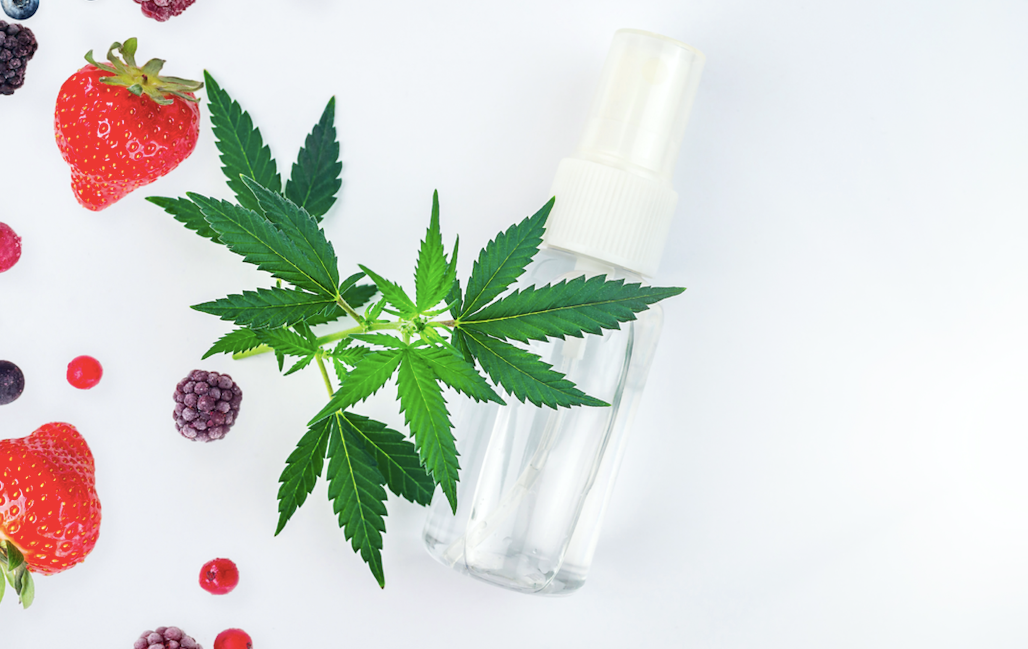
What Is THC Spray? Cannabis Oral Spray
|
Time to read 5 min
|
Time to read 5 min
As people who enjoy the amazing experiences that only cannabis can bring, we have plenty to thank THC for. This compound, as we have explained before, is the one responsible for the best side effects of weed, especially its pain-killing properties, so many of the connoisseurs of this hobby understandably want as much as possible in each joint, dab, edible, or bong hit they take. However, how can you ensure you get the THC you paid for? And what does THC spray for weed have to do with this?
Table Of Contents
Well, don’t be alarmed, dear stoner, but according to recent reports, the THC content of the recently legalized weed you are buying might be what you expect, labels and all. Yeah, according to an article by Gizmodo, legal dispensaries in Colorado (and probably other places, do not advertise a truthful amount of THC in their cannabis strains, mainly because the regulations around weed are still being figured out, and some unscrupulous people are taking advantage of that. Many types of weed plants have variations in the content of this compound, there’s nothing weird about it, but outright misrepresenting it is kind of crappy, to say the least.
This is especially awful for people who rely on cannabis for pain relief, so if you want to make sure your medical needs are met, then some alternatives could be acceptable. To that end, have you ever heard of THC sprays? These products contain the psychoactive compound tetrahydrocannabinol you are looking for in spray form. They are designed to be used under the tongue for quick absorption and onset of effects (and if you are a newbie in the weed business, we have already made “cannabis for dummies” guides for alternative weed consumption methods right here).
Coming back to the topic, these sprays typically come in a small bottle with a spray nozzle and are easy to use. Users can simply spray the desired amount of THC under their tongue and hold it there for a few seconds before swallowing. It’s important to note that THC sprays are often used for medical purposes, such as pain relief, reducing inflammation, and improving sleep, but they can also be used for recreational purposes, producing the euphoric and psychoactive effects associated with THC that you are surely yearning for. So let’s get more in-depth about it.
Okay, so, sublingual THC sprays are designed to be used under the tongue for rapid absorption into the bloodstream. This means they are easy to use, and the benefits include the rapid onset of effects, more accurate doses, and offer a very discreet way of consuming weed. If you want to know, sublingual THC sprays are typically made by infusing a carrier oil with THC extract, which usually is highly concentrated, which means that if you are new to this method, it's important to start with a small dose and gradually increase as needed to avoid taking too much THC at once. Like all marijuana products, THC sprays can have side effects, and it's important to consult a doctor or other medical professional before using any cannabis product for medicinal purposes.
Now, what you might be thinking is, can I make my own? After all, we have talked plenty about making your own dabs, edibles, and more, and you feel confident using THC wax burners and other risky consumption methods, but this time we will need to stop right here. The main ingredient of a good spray is concentrated THC oil which can be dangerous if not handled properly. Some of the risks involved are…
Given all these potential risks involved in handling concentrated THC oil, we at HØJ do not recommend that amateur individuals attempt to make THC sprays at home. In this case, at least, it’s better to purchase it from a licensed dispensary or online retailer to ensure the safety and quality of the product. And you can still have a great time once you acquire some!
To know if the THC content of a cannabis product, like a spray, is correct, you should look for information about the product's potency testing. Potency testing is a process that measures the concentration of THC and other cannabinoids in a cannabis product, such as flowers, oil, or edibles. In many jurisdictions where cannabis is legal, licensed dispensaries and producers are required to have their products tested by independent laboratories. These laboratories use specialized equipment and methods to accurately measure the concentration of THC and other cannabinoids in the product.
So, when purchasing a weed product, look for information about the potency testing on the product label or packaging. This information should include the concentration of THC in milligrams per serving or per unit of the product; for example, if you are buying an edible, the label should indicate the number of milligrams of THC in each serving of the product, and always be wary of retail products that omit this information.
Still, it's important to note that there can be some variability in the potency of cannabis products, even if they have been tested. Factors such as storage conditions, the age of the product, and variations in the cannabis plant itself can all affect the potency of the product and the side-effects you might end up with. As always, research is the name of the game, in particular, if you are looking for something for pain relief, then it’s doubly important you are careful with your sprays.
We hope we answered all of your questions, so until the next time here at HØJ!
Author: Shaggy
Disclaimer: HØJ is not a medical advice blog, so please consult with a doctor or a specialist if you have any questions regarding smoking or anything related to cannabis consumption itself.


